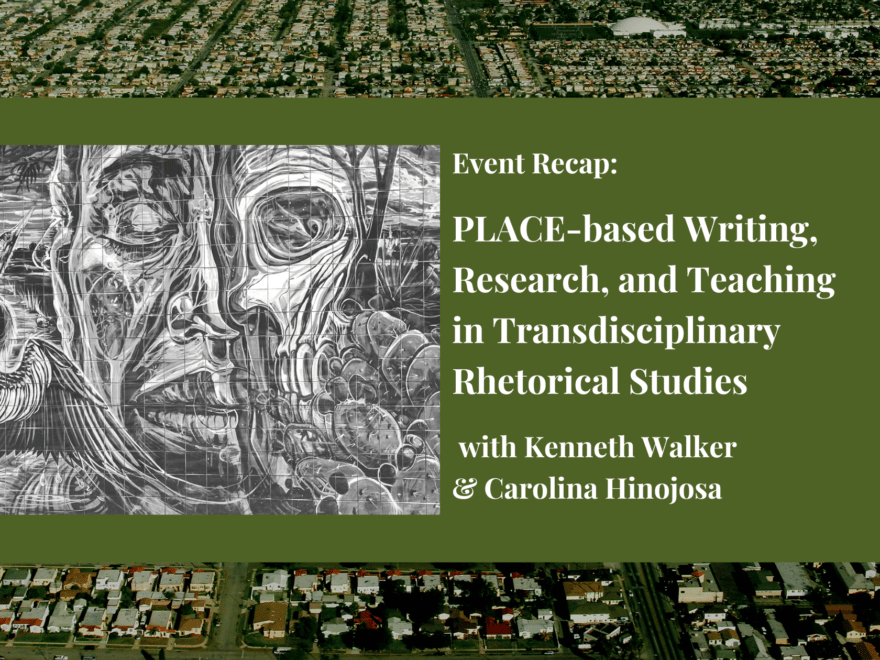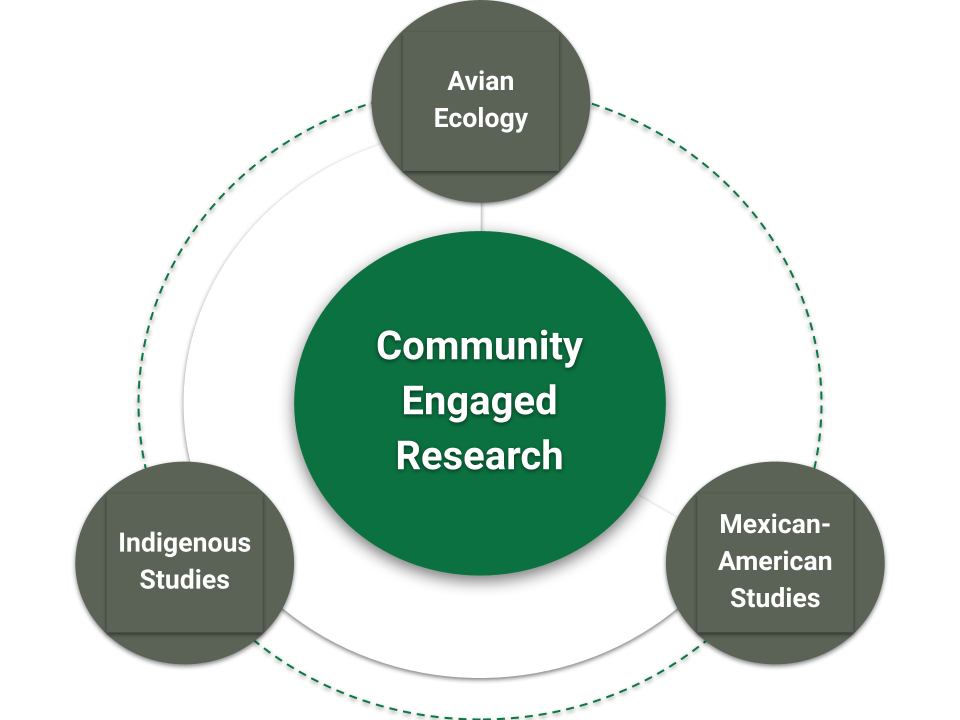On January 25, the WRD Speaker Series Committee welcomed Dr. Kenneth Walker and Carolina Hinojosa, from the University of Texas, San Antonio, for another installment of the Writing & Rhetoric Across Borders speaker series. In the virtual event, Walker and Hinojosa presented a Pedagogical Conversation on Environmental Rhetorics titled “Place, Liberation, Advocacy, Community, Environment: (PLACE)-based writing, research, and teaching in transdisciplinary rhetorical studies.” Read on for highlights of the insightful presentation and discussion.
To give context to PLACE-based pedagogy, Walker and Hinojosa explored community engaged projects across San Antonio. Three key aspects informed the presentation’s rhetorical lens: place-keeping, decolonization, and pluriversality. According to Hinojosa, place-keeping can be thought of as stewarding the rhetorical, physical, and connective aspects of a place by asking “What are we going to hold onto [and let go of] in this place?” In this context, decolonization can be taken as an act of place-keeping that interrogates a place’s history in terms of displacement, identity, and reclamation. Finally, pluriversality is a decolonial, counternarrative rhetorical theory in which (according to Walker) “by focusing on one thing, multiple worlds emerge.” Taken together, Walker and Hinojosa shared that the three create an impetus not only to investigate the physical contexts in which rhetorics are enacted, but also to understand the multiple and often conflicting stories behind them.
Walker and Hinojosa guided the audience through critically reading one of San Antonio’s San Pedro Creek Park murals. This mural encapsulates the area’s complex history of colonization, gentrification, reclamation – as well as the stories that continue the legacies of each. They then invited the audience to share their own examples of places where the same questions regarding place-keeping, decolonization, and pluriversality can help create a deeper understanding of place. Additionally, the presentation walked the audience through several borderland story-maps, which detailed locations in San Antonio that were critical in the region’s history of resisting colonization, gentrification, and civil rights abuses. Conversation also focused on how such rhetorical approaches, particularly story-mapping, can be applied in teaching contexts.
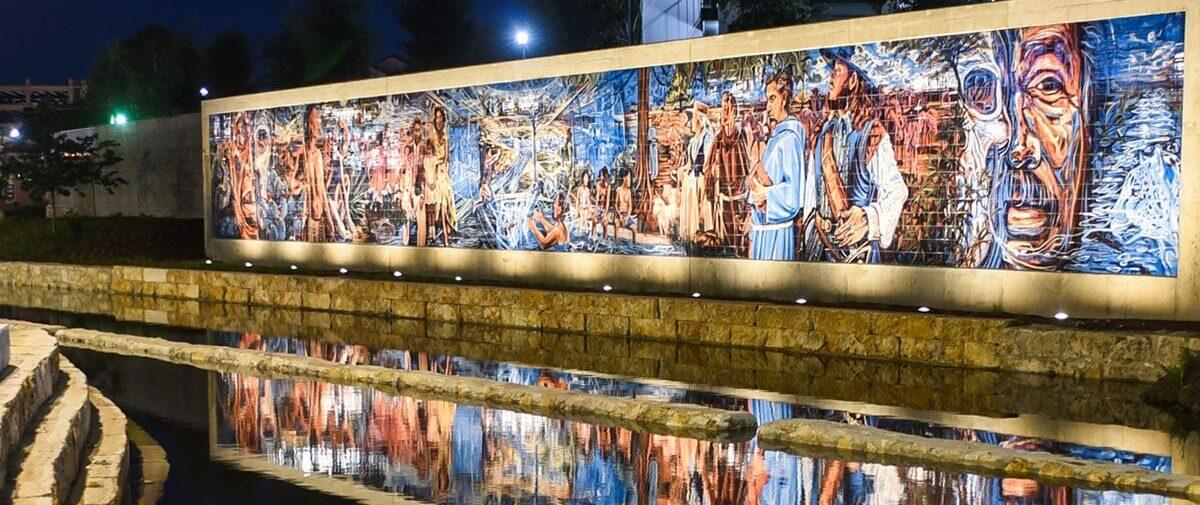
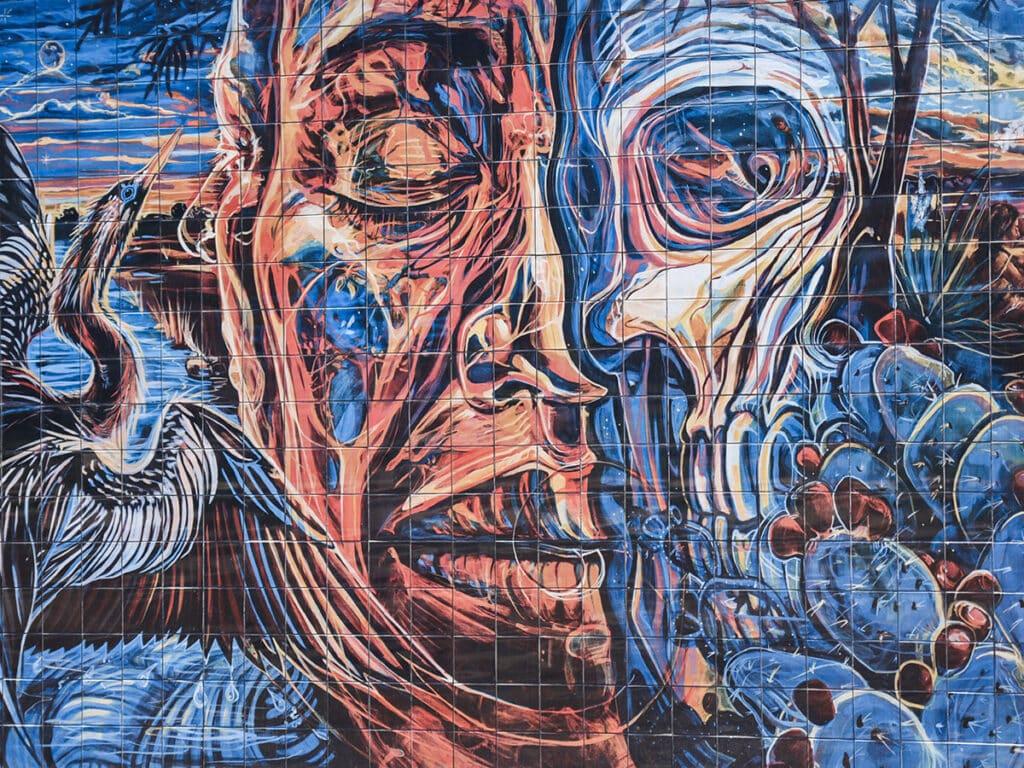
“De Todos Caminos Somos Todos Uno” Mural in San Pedro Creek Culture Park , San Antonio. By Adriana Garcia.
Finally, Walker and Hinojosa discussed their research and teaching through the Urban Bird Project, a community science program that connects students and scholars of Avain Ecology, Mexican-American Studies, and Indigenous Studies with students from local schools to explore local and culturally significant birds through a rhetorical and scientific lens. The project advances by “engaging students and community members in bird-focused ecological research, increasing cross-cultural understanding of the importance of birds across communities, and engaging in the co-development & construction of knowledge through community science.”
From Chicago to San Antonio and beyond, PLACE-based pedagogy engages students, instructors, and community partners alike in deep place-based reflection. This pedagogical approach also provides a pathway for writing and rhetoric scholars to advance liberation through mindful and critical pedagogy. Walker and Hinojosa concluded that across disciplines and through stories, PLACE-based pedagogy encourages rootedness and collaboration toward social justice that are critical for the field.

Kenneth Walker, PhD is an Associate Professor at the University of Texas, San Antonio. He is a rhetorical scholar-activist with expertise in interdisciplinary humanities at the intersections of ecology, technology, and community. Broadly, his research examines how ecological, cultural, and political rhetorics interact through place-based, interdisciplinary, and community-engaged projects.
–
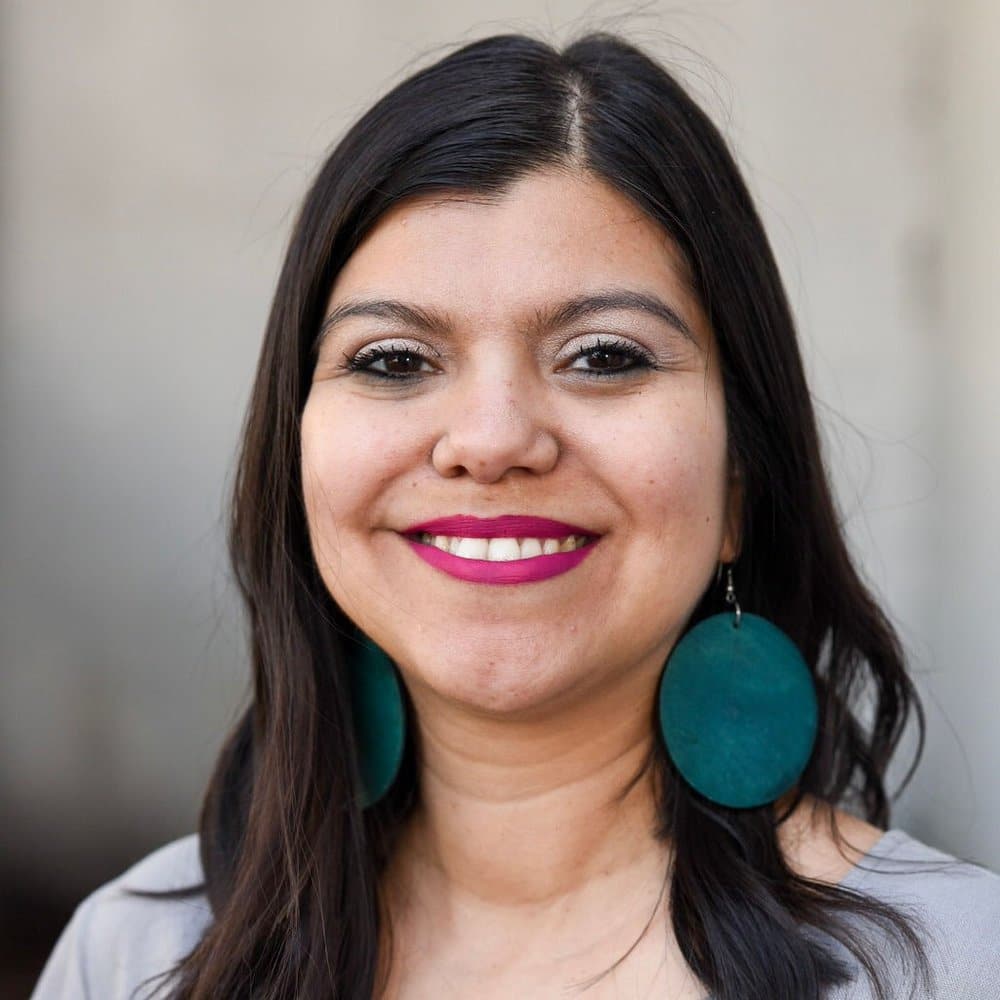
Carolina Hinojosa is a second-year doctoral student in English at the University of Texas, San Antonio. She conducts interdisciplinary research at the intersections of spatial rhetoric, digital humanities, and Latinx/Chicanx feminist ecologies. Hinojosa is native to San Antonio, Texas and engages in space-place community projects.
